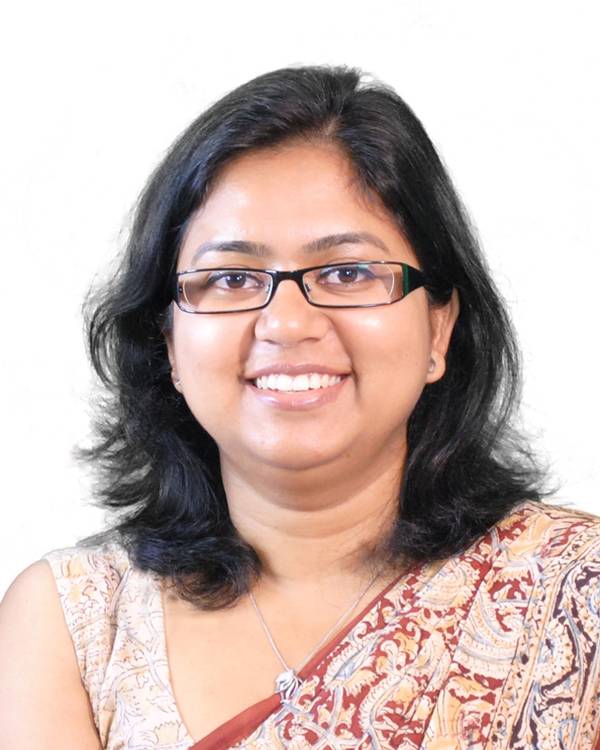Search
Dr. Aditi Mukherji is the first recipient of the new Norman Borlaug Award for Field Research and Application, Endowed by the Rockefeller Foundation. The annual award will recognize researchers under 40 in the early stages of their work who emulate the scientific innovation and dedication demonstrated by Nobel Peace Prize Laureate Dr. Norman Borlaug.
 |
| Dr. Aditi Mukherji |
Des Moines, Iowa (Aug. 27, 2012) -- A young Indian social scientist whose research on groundwater resources in agriculture led to major policy changes benefiting thousands of farmers in West Bengal was today named the first recipient of the “Norman Borlaug Award for Field Research and Application, Endowed by the Rockefeller Foundation.”
At the request of the World Food Prize Foundation, the announcement was made during the prestigious Stockholm World Water Week in Sweden that Dr. Aditi Mukherji, a senior researcher at the International Water Management Institute’s New Delhi office, has been named the winner of the new award.
Dr. Mukherji will be formally presented with the $10,000 award on October 17, 2012, in Des Moines, Iowa, as part of this year’s World Food Prize international symposium.
During her intense fieldwork surveying more than 4,000 groundwater users, Dr. Mukherji discovered that smallholder farmers in water-abundant eastern India were being prevented by certain policy restrictions from gaining access to the water resources needed for irrigating their crops. She then worked closely with the farmers and village residents to ensure that their concerns were fully recorded and that their collective voice was heard by the policy makers.
“Dr. Mukherji has demonstrated qualities that emulate Dr. Borlaug’s ingenuity and perseverance in transferring his scientific breakthroughs to farmers and hungry people around the world through the gateway of government policy and action,” said Amb. Kenneth M. Quinn, president of the World Food Prize Foundation. “Like Dr. Borlaug, she has shown persistence, innovation, effective communication, contribution to science, and application of that science for policy change to improve lives and livelihoods.”
Quinn added, “This year, the Stockholm Water Prize is honoring IWMI, the World Food Prize is recognizing renowned irrigation expert Dr. Daniel Hillel, and now this new award is going to Dr. Mukherji, creating a truly unique trifecta of honors that reflect the critical importance of water in the world’s global food supply.”
Dr. Mukherji said that her accomplishments have required a combination of field work, data collection and collaboration with other researchers and policy makers.
“Access to reliable, affordable and timely irrigation are very powerful tools of poverty alleviation,” Dr. Mukherji said. “What truly inspires me is the impact that one’s research can make on the lives of the poor by providing more food on their table – something that Dr. Borlaug showed us years ago through his pioneering work in Mexico, India and elsewhere. He is my ultimate role model.”
Her research combined with her action in the political arena led to the enactment of two critical policy changes in the past two years—one to remove a restrictive permit requirement for operating low-power irrigation pumps; and another to reduce the electrification cost to run the pumps. As a result, farmers now have easier and more universal access to groundwater for irrigation and will be able to intensify their cropping systems, earn better livelihoods and emerge out of poverty.
Dr. Mukherji took her research data directly to the government, first meeting with the head of the Indian Planning Commission, who then included her in an official delegation to meet with the West Bengal Secretary of Water Resources, and the Secretaries of Agriculture, Finance and Rural Development. The evidence she presented convinced these and other officials that the enacted groundwater policy, which had been based on a common discourse surrounding water scarcity and depletion elsewhere in India, needed to align with actual abundant groundwater supplies in eastern India. Dr. Mukherji showed that the old policies that effectively banned the pumping of groundwater by poorer farmers had a huge impact in increasing poverty and malnourishment among large segments of the population.
Amb. Quinn emphasized that an independent jury of experts selected Dr. Mukherji from an impressive group of candidates who were evaluated based on the attributes and accomplishments that reflect those demonstrated by Dr. Norman Borlaug during his work in developing high-yielding, disease-resistant wheat in Mexico and introducing adaptable wheat varieties into India and Pakistan during the 1950’s and 60’s, for which he received the Nobel Peace Prize in 1970.
Dr. Mukherji was educated at Presidency College, Calcutta; Jawaharlal Nehru University, Delhi; and the Indian Institute of Technology, Mumbai; and completed a Ph.D degree in Human Geography at the University of Cambridge, United Kingdom.
Dr. Mukherji may be reached for interviews at a.mukherji@cgiar.org or +91 8800473205.
ABOUT THE WORLD FOOD PRIZE: The World Food Prize was founded in 1986 by Dr. Norman E. Borlaug, recipient of the 1970 Nobel Peace Prize. Since then, The World Food Prize has honored outstanding individuals who have made vital contributions to improving the quality, quantity or availability of food throughout the world. Laureates have been recognized from Bangladesh, Brazil, China, Denmark, Ethiopia, Ghana, India, Mexico, Sierra Leone, Switzerland, the United Kingdom, the United Nations and the United States. The Prize also hosts the annual Borlaug Dialogue international symposium on global food issues and a variety of youth programs that aim to inspire the next generation to work in the fields surrounding global agriculture.


